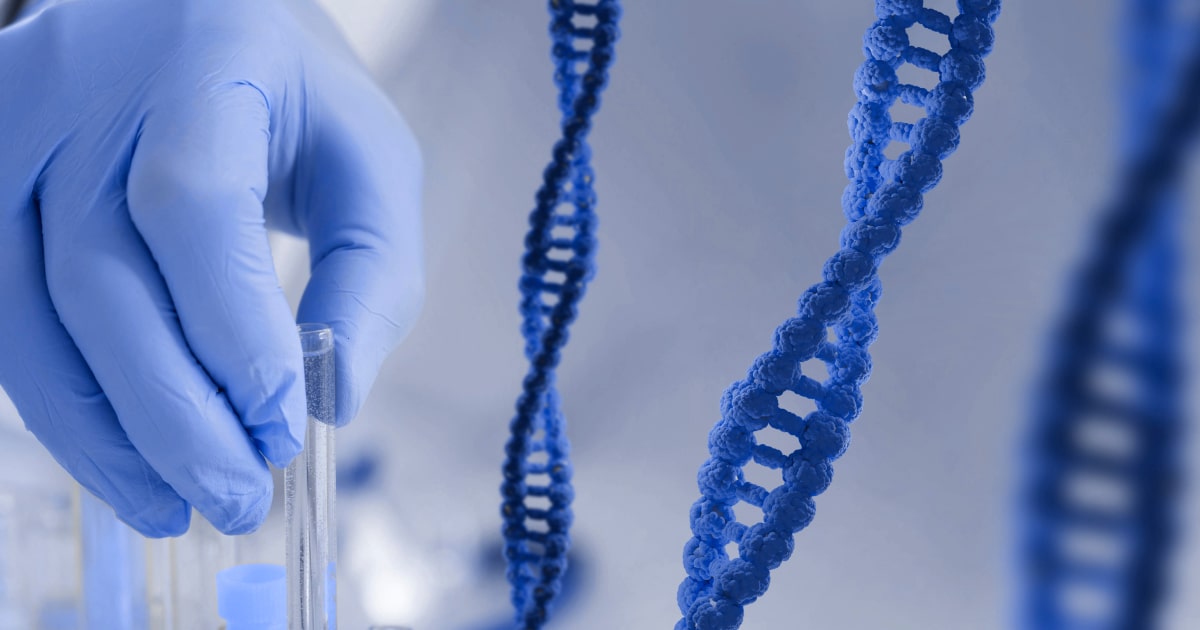
Expert Reviewed By: Dr. Brandon Colby MD
Autism Spectrum Disorder (ASD) is a complex neurodevelopmental condition characterized by social communication difficulties, repetitive behaviors, and restricted interests. While the exact causes of ASD remain unclear, research has shown that genetic factors play a significant role. This article will explore the latest findings on understanding, diagnosing, and using genetic testing for autistic behavior.
Unraveling the Chromosomal Connection
Recent studies have shed light on potential genetic links to autistic behavior. One such study, "Unbalanced Translocation Affecting the Long Arms of Chromosome 10 and 22 Causes Complex Syndromes with Very Severe Neurodevelopmental Delay, Speech Impairment, Autistic Behavior, and Epilepsy," found a causal association between an unbalanced translocation affecting chromosomes 10 and 22 and severe neurodevelopmental delay in three siblings. This discovery offers valuable insight into the genetic underpinnings of autism and related conditions.
Environmental Factors and Autism
While genetic factors are crucial in understanding autistic behavior, environmental factors also play a role. A study titled "Maternal Stress Combined with Terbutaline Leads to Comorbid Autistic-Like Behavior and Epilepsy in a Rat Model" demonstrates that the combination of maternal stress and terbutaline results in severe ASD-like behavior and epilepsy in rats. This finding highlights the importance of examining the combinatorial effects of teratogens in humans to better understand the development of autistic behavior.
Oxytocin: A Potential Treatment for Autistic Behavior?
As researchers continue to explore the genetic and environmental factors contributing to autistic behavior, potential treatment options are also being investigated. One promising avenue is the use of oxytocin, a hormone known to play a role in social bonding and behavior. The review "Integrative Approaches Utilizing Oxytocin to Enhance Prosocial Behavior: From Animal and Human Social Behavior to Autistic Social Dysfunction" discusses the effects of oxytocin on social behavior, the brain, and the social dysfunction of ASD. This research promotes further study for developing oxytocin as a potential treatment for autistic behavior.
Testosterone and Autistic Traits
Another study, "Epigenetic effect of testosterone in the behavior of C. elegans. A clue to explain androgen-dependent autistic traits?," suggests that testosterone may impair nervous system function, generating transgenerational epigenetic marks in the genome. This finding provides new paradigms for understanding biological mechanisms involved in ASD traits and highlights the importance of considering hormonal factors in the development of autistic behavior.
Genetic Testing for Autistic Behavior
Identifying Genetic Variants
Genetic testing can be helpful in identifying specific genetic variants associated with autistic behavior. By detecting chromosomal abnormalities, such as the unbalanced translocation affecting chromosomes 10 and 22, researchers and clinicians can gain a better understanding of the genetic factors contributing to ASD. This knowledge can inform diagnosis, treatment planning, and family counseling.
Prenatal Screening
Genetic testing can also be used for prenatal screening, allowing expectant parents to assess the risk of their child developing autistic behavior. Prenatal testing can detect genetic abnormalities associated with ASD, providing valuable information for parents and healthcare providers to make informed decisions regarding pregnancy management and early intervention strategies.
Informing Treatment Options
As our understanding of the genetic factors contributing to autistic behavior grows, so too does the potential for targeted treatment options. By identifying specific genetic variants associated with ASD, researchers can develop targeted therapies, such as oxytocin-based treatments, to address the underlying biological mechanisms and improve outcomes for individuals with autistic behavior.
Understanding Family Risk
Genetic testing can provide valuable information for families with a history of autistic behavior. By identifying genetic variants associated with ASD, family members can better understand their risk of having a child with autistic behavior and make informed decisions about family planning and early intervention strategies.
In conclusion, genetic testing offers a powerful tool for understanding, diagnosing, and treating autistic behavior. As our knowledge of the genetic factors contributing to ASD continues to grow, so too does the potential for targeted therapies and improved outcomes for individuals with autistic behavior and their families.
About The Expert Reviewer
Dr. Brandon Colby MD is a US physician specializing in the personalized prevention of disease through the use of genomic technologies. He’s an expert in genetic testing, genetic analysis, and precision medicine. Dr. Colby is also the Founder of and the author of Outsmart Your Genes.
Dr. Colby holds an MD from the Mount Sinai School of Medicine, an MBA from Stanford University’s Graduate School of Business, and a degree in Genetics with Honors from the University of Michigan. He is an Affiliate Specialist of the American College of Medical Genetics and Genomics (ACMG), an Associate of the American College of Preventive Medicine (ACPM), and a member of the National Society of Genetic Counselors (NSGC)